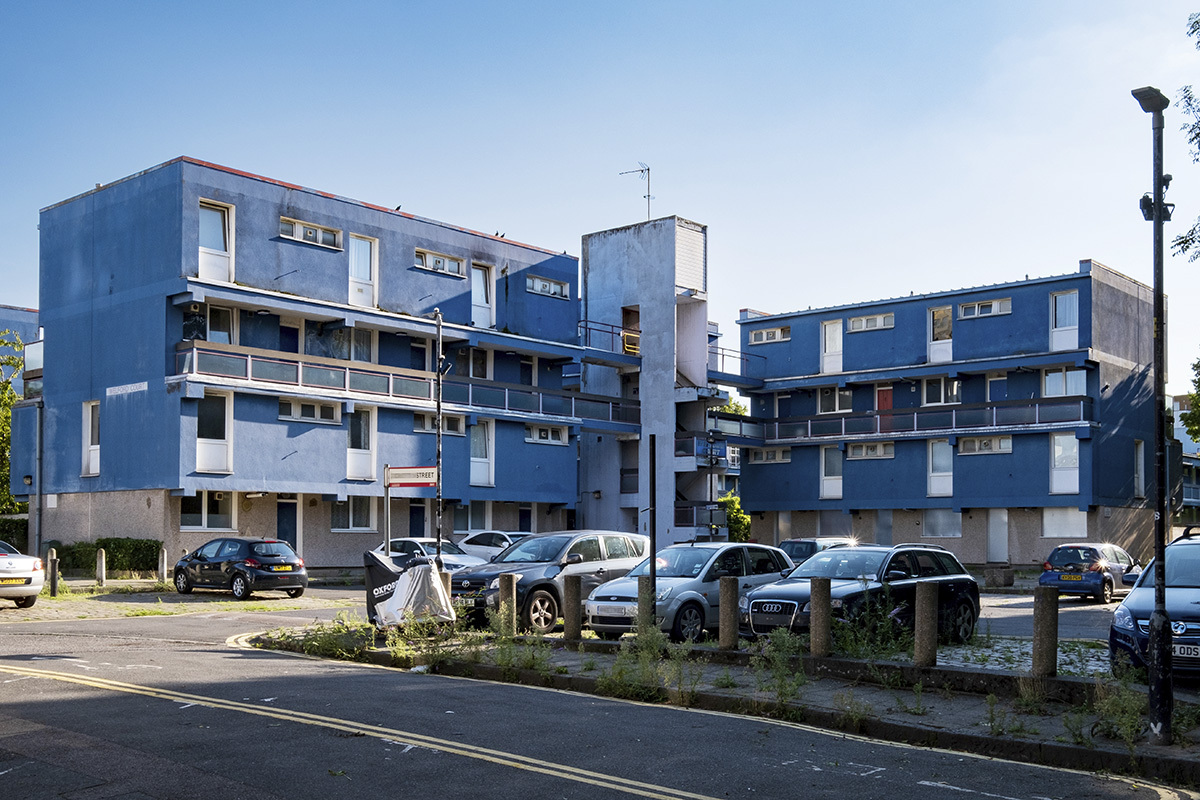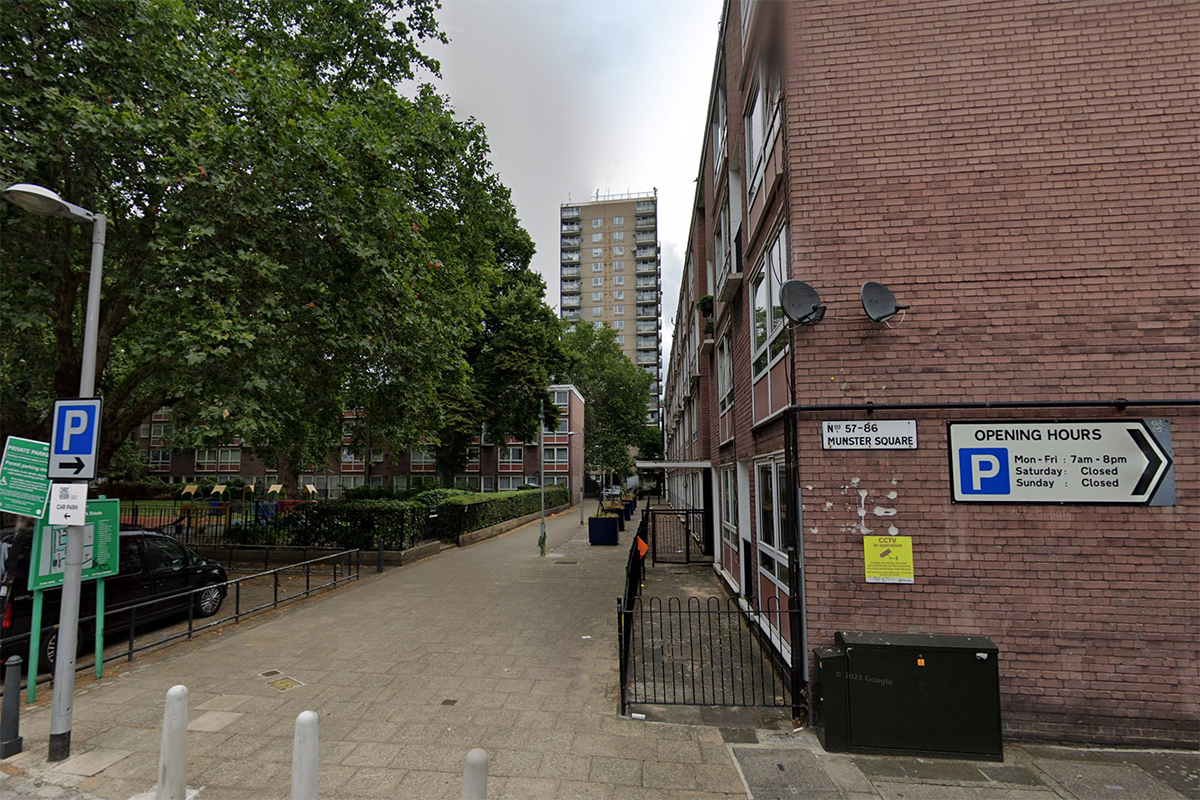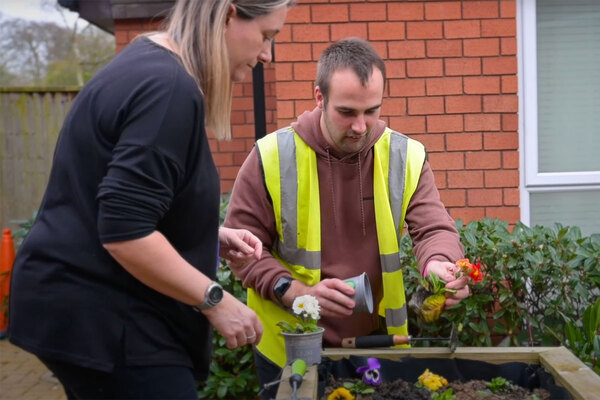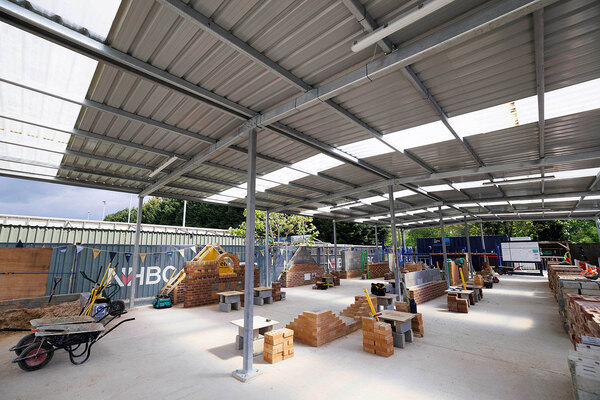You are viewing 1 of your 1 free articles
Revealed: Housing Ombudsman names worst-performing landlords on noise complaints
The Housing Ombudsman has unveiled data to show the worst-performing landlords regarding noise complaints in homes.
Between 1 April 2021 and 31 March 2022, a total of 181 cases concerning 96 landlords were brought to the watchdog following noise pollution complaints that residents felt had been mishandled. Of those 181 cases, the ombudsman agreed that maladministration was found in 78 cases.
The findings are outlined in a series of tables, organised by maladministration findings per 10,000 homes so that the size of the organisation is taken into account.
One table highlights landlords that had three or more findings on noise complaints during the year-long period (see below). Rated the worst, with 2.72 maladministration findings per 10,000 homes, was 8,000-home Newlon Housing Trust.
Out of three cases brought to the ombudsman about Newlon that concerned noise, two were found to include maladministration.
Following Newlon in the list of highest cases were Tower Hamlets Council, Waltham Forest Council, PA Housing and Optivo.
Three noise complaint cases were also brought to the watchdog about Tower Hamlets, of which maladministration was found in the way two cases were handled – a rate of 1.72 maladministration cases per 10,000 homes.
Waltham Forest Council, which owns and manages around 10,000 homes, was found to have mishandled one noise complaint case.
PA Housing had four noise findings, of which two were deemed to be maladministration, and Optivo had eight findings, of which four were deemed maladministrations.
The findings come as part of a wider report published today by the ombudsman, examining three years of noise-related cases brought from social landlords to the watchdog for investigation.
In 2021-22, the maladministration rate for non-statutory noise complaints was higher than average (62%) – something the report’s authors attributed to residents spending more time indoors during the COVID-19 pandemic.
In 2021-22, the most common type of noise report brought to the ombudsman for investigation related to “household noise”, (32 out of 52 maladministration findings) which the ombudsman defined as “everyday noise such as the closing of doors, children noise and people talking and walking about in their homes”.
Eight mishandled noise reports concerned complaints about music, followed by four reports about pets, and two complaints each relating to DIY, parties, plumbing and external noises.
Of the complaints deemed to be subject to maladministration, the ombudsman made 51 orders for residents to receive compensation.
In an opening statement for the report, housing ombudsman Richard Blakeway, warns of “a fundamental unfairness” at the heart of the report’s findings, in that most of the complaints made concern household noise such as general movement, music or washing machine sounds, rather than anti-social behaviour (ASB). However, he said that most landlords handle these types of instances under their ASB policy.
He said he believes that this approach is unfair to the complainant and the resident being complained about, and that it makes it more difficult for the landlord to make reasonable and consistent decisions without a better framework in place for all types of noise complaints.
More than two-thirds (76%) of landlords said that they deal with all noise reports under their ASB policies.
The report also revealed a number of inconsistencies with how complaints were said to have been addressed. While two-thirds (66%) of landlords said they have noise-monitoring equipment in their properties, only 7% of residents said they had had a noise-monitoring device fitted.
Meanwhile, 85% of landlords said they had offered mediation for noise disputes, but 29% of residents said they had been offered it.
Mr Blakeway said: “Noise costs; it costs individuals their mental health and well-being and it costs landlords in protracted and often futile interventions, multi-agency liaison and staff morale.”
Such costs are “underestimated”, but may be avoidable through measures recommended in the report, he added.
The report puts forward a number of recommendations, including a call by the watchdog for the Decent Homes Standard to be revised “to fully reflect the causes that can result in residents experiencing noise nuisance”.
Other recommendations include an update to standards to ensure that anti-vibration mats are put under washing machines and that carpets are used in social homes, removing hardwood flooring where necessary.
Landlords should also adopt proactive neighbourhood management policies that are distinct from anti-social behaviour policies to ensure that complaints do not get mishandled, the report said.
It was also recommended that “a triage methodology” is adopted “to identify if a noise report should be handled under the ASB policy or the neighbourhood management policy, and reviewing ASB policies to ensure they are realistic and practicable”.
The national and local lockdowns during the COVID-19 pandemic led to an increase in reports during 2020 and 2021, the report’s authors said. This was likely caused by people staying in their homes for longer periods of time when they may previously have been out and about.
“We recognise that landlords are under increasing financial pressure and the role of sound insulation should be considered as part of wider strategies,” Mr Blakeway said. “Few of our recommendations present a significant cost. Rather, our practical recommendations could be cost effective, as well as providing better outcomes.
“Landlords should consider the extent to which they can adopt them and what meaning this will bring for their residents.”
All of the landlords named in this article have been approached for comment.
Landlords with three or more cases where noise was part of the complaint
| Landlord | Maladministration findings per 10,000 homes | % maladministration | All noise cases | Cases with maladministration |
| Newlon Housing Trust | 2.72 | 67 | 3 | 2 |
| Tower Hamlets Council | 1.72 | 67 | 3 | 2 |
| PA Housing | 1.41 | 100 | 3 | 3 |
| Waltham Forest Council | 1.03 | 33 | 3 | 1 |
| Optivo | 0.92 | 57 | 7 | 4 |
| Notting Hill Genesis | 0.89 | 100 | 5 | 5 |
| Peabody Trust | 0.77 | 44 | 9 | 4 |
| One Housing Group | 0.77 | 33 | 3 | 1 |
| Newham Council | 0.65 | 33 | 3 | 1 |
| Islington Council | 0.55 | 67 | 3 | 2 |
| L&Q | 0.5 | 80 | 5 | 4 |
| Orbit | 0.45 | 50 | 4 | 2 |
| Southwark Council | 0.37 | 67 | 3 | 2 |
| Leeds City Council | 0.35 | 50 | 4 | 2 |
| Bristol City Council | 0.35 | 33 | 3 | 1 |
| Clarion | 0.27 | 23 | 13 | 3 |
| Sanctuary | 0.25 | 33 | 6 | 2 |
| The Guinness Partnership | 0 | 0 | 3 | 0 |
| Westminster City Council | 0 | 0 | 3 | 0 |
Responses from worst-performing landlords
Newlon Housing Trust: “We are disappointed that two complex cases of flooring-related noise transference between flats resulted in maladministration findings last year.
“We completely reorganised our approach to supporting residents who are experiencing ASB at the end of 2020 and now this has bedded in we have a more proactive service with higher levels of reported satisfaction as a result.
“We understand the serious impact that ASB and noise has on our residents’ lives and we are always looking for new ways to improve our approach.”
Ian Watts, executive director of customer services, PA Housing: “Where we are unable to resolve a complaint directly with a customer, we welcome the support the Housing Ombudsman provides to deliver a fair, impartial and independent resolution service.
“We always aim to provide a great customer experience but know there are times we could do better and it’s important to us that we learn from our mistakes.
“Following a review of the cases reported to the Housing Ombudsman in 2021-22, we’ve made improvements to our first point of contact service for anti-social behaviour (ASB) reports to ensure our staff provide consistent and improved case management, deliver support, show empathy, and provide solutions.
“Whilst we have already seen a significant improvement in our ASB case management process, we welcome the recommendations set out in the Housing Ombudsman’s report to further improve how noise complaints are managed. Particularly, the importance of good neighbourhood management – an approach we currently take with our neighbourhood champions, also known as Team Purple.”
Optivo: “We welcome the ombudsman shining a light on how housing providers can improve their anti-social behaviour (ASB) services and we’re committed to improving ours.
“In 2021-22, our trained ASB officers dealt with 121 noise-related cases, assessing any risks and creating action plans directly with residents. Of these cases, eight were found by the ombudsman to have a level of service failure (not maladministration). These cases were increasingly complex, with a number of factors and other agencies involved.
“We’ve learnt from these findings and we’ve already taken steps to make changes to the service we provide, and the training we give to our frontline teams.
“During 2021 we launched a co-creation project involving residents and colleagues. The aim of this was to improve our residents’ ASB customer journey. We’ve worked to deliver all the recommendations from this project. Some of these actions related specifically to noise, such as ‘resident-approved’ leaflets, and letters which provide improved guidance to residents reporting noise. All frontline colleagues have received training on the changes we’ve introduced to our ASB process.
“We also hold regular management reviews of all complaints about ASB (including Ombudsman cases). This is an opportunity to identify trends and share learning throughout all teams to prevent a repeat of these issues.
“Our ASB satisfaction has improved and this year 87.5% of residents have reported they are satisfied with the service they’ve received. We recognise there is more to do and we’ll continue to strive to deliver an improved service.”
A Tower Hamlets Homes spokesperson said: “We take noise nuisance seriously. We are aware for the Ombudsman’s findings and will work closely with them to implement their recommendations fully,
"Our service includes out-of-hours visits, antisocial behaviour staff acting as witnesses, employing professional witnesses and working with Tower Hamlets Council to tackle statutory noise nuisance.”
Sign up for our regulation and legal newsletter
Already have an account? Click here to manage your newsletters












